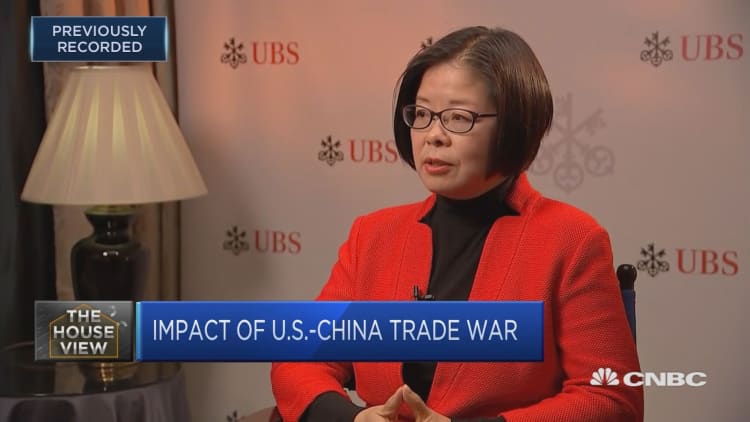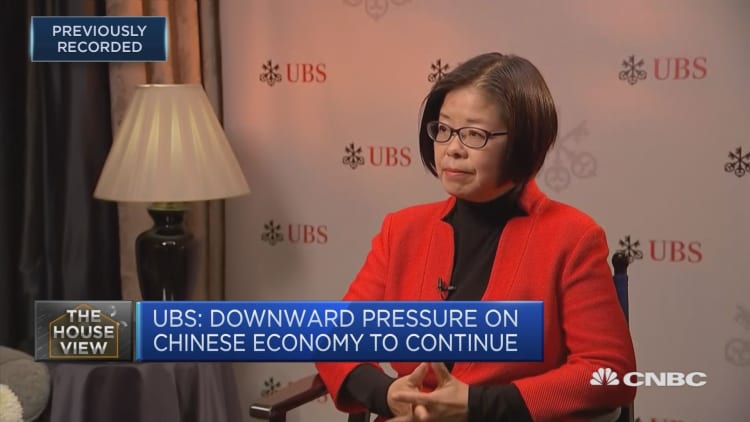
Huawei and other Chinese tech companies will be subject to tough restrictions from the United States irrespective of any future trade deal, an economist told CNBC Tuesday.
The two largest economies in the world have been at odds over their trade links for about 18 months. Their tit-for-tat tariff dispute escalated in May, when the U.S. took steps to ban Huawei from selling its technology in the U.S. market.
"Even with a phase one trade deal or even a complete trade deal, our conviction is that tougher restrictions from the U.S. on technology will continue," Tao Wang, chief China economist at UBS, told CNBC's Joumanna Bercetche.
Speaking at the UBS European Conference, Wang said that the U.S. decision to ban Huawei was a "catalyst to show that actually the dispute on the trade front has spread to other areas, like technology."
In May, President Donald Trump signed an executive order declaring that the U.S. telecoms sector was experiencing a "national emergency." "Foreign adversaries are increasingly creating and exploiting vulnerabilities in information and communications technology and services," Trump said in the order.

According to Wang, the national security argument makes it more difficult for the U.S. to change its position on Chinese tech.
"Once you mention that, I think it's very difficult for any politician to say 'I don't care about national security.' It is going to be difficult to actually reverse," she said.
Last month, Trump said that the U.S. and China have put together a "very substantial phase one deal" and that "phase two will start almost immediately" after the first part is signed. According to the U.S. president, the first part of the deal is about "60%" of the full agreement. For now, there is no scheduled date nor place for the first signing between China and the U.S.
China could grow 5.7% in 2020
According to UBS, China is set to grow at a pace of 5.7% in 2020, after the U.S. administration decided in October not to implement more tariff increases on Chinese goods. The bank's forecast assumes there won't be an escalation in trade tensions between Beijing and Washington.
At the same time, UBS has also noted that the several increases in tariffs throughout 2019 have impacted investment into the Chinese corporate and manufacturing sectors. Property starts and investment are also likely to weaken modestly in 2020 as a result of trade uncertainty, it said.
Wang told CNBC that overall the Chinese growth rate in 2020 will depend on the trade war. She said that if the latest round of potential duties were removed, alongside the September tariffs, "China has a pretty decent chance of getting to 6% (GDP in 2020)."


